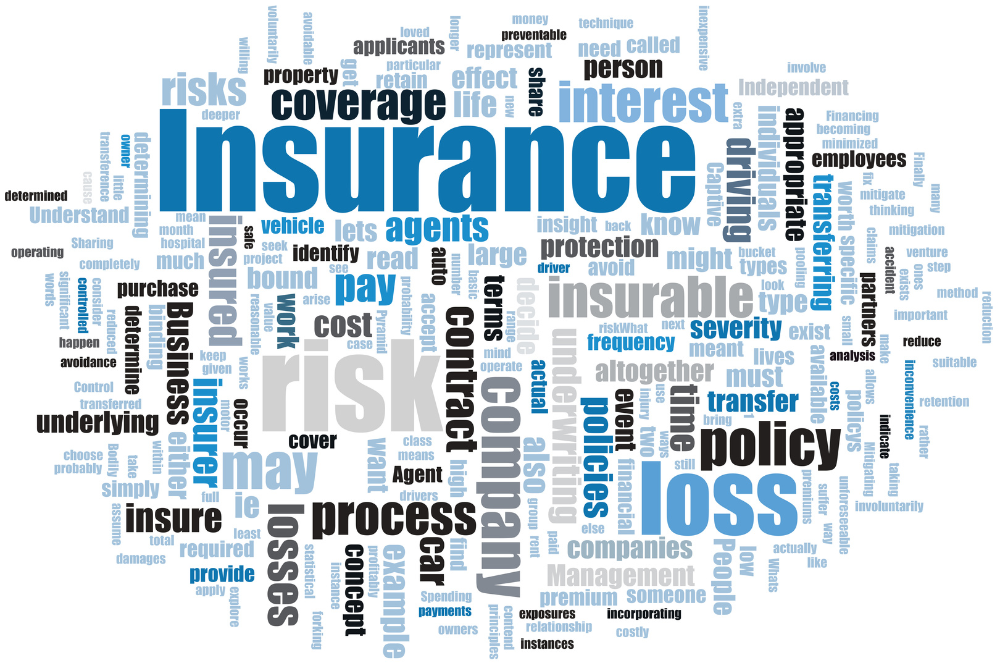What is the health insurance marketplace?

A health insurance marketplace is a place where people can shop for health coverage. It’s also sometimes called the health insurance exchange. The health insurance marketplace is a way to find and compare health plans in one place. You can see what kinds of coverage and benefits each plan offers, and how much it costs. The health insurance marketplace is open to everyone, whether you have health insurance or not.
If you don’t have health insurance, you can use the marketplace to find a health plan that meets your needs and budget. You may be able to get help paying for your coverage through the marketplace. If you have health insurance, you can use the marketplace to see if you can get a better deal on your coverage. You can also use the marketplace to shop for different kinds of health plans, like dental plans or vision plans. The health insurance marketplace is run by the federal government. Every state has its own marketplace. You can learn more about the health insurance marketplace on Healthcare.gov.
How to get health insurance through the marketplace

The health insurance marketplace is a website where you can compare and enroll in health coverage. You can shop for health insurance plans, including private health insurance and Medicaid, side-by-side. The health insurance marketplace is also sometimes called the health care exchange. The health insurance marketplace is open to everyone, whether you have health coverage or not. If you don’t have health coverage, you can use the health insurance marketplace to find and compare health plans and find out if you qualify for subsidies. You can also use the health insurance marketplace to compare prices for different services, like doctors and hospitals. The health insurance marketplace is a good place to start if you’re looking for health coverage. You can learn more about the health insurance marketplace by visiting the website or contacting your state’s department of insurance.
How to get health insurance through private insurance

Private health insurance is health care insurance that is provided by a private company rather than the government. There are many different types of health insurance plans available through private insurers, and the specific coverage and costs will vary depending on the plan. Many employers offer health insurance benefits to their employees, and individuals can also purchase health insurance plans directly from an insurer.
In order to get health insurance through a private insurer, you will typically need to fill out an application and provide some personal information, such as your age, gender, and health history. Once you have been approved for coverage, you will be required to pay premiums on a monthly or yearly basis. In the event that you need medical care, you will be able to use your health insurance to cover the costs of treatment.
Pros and cons of getting health insurance through the marketplace
There are a number of ways to obtain health insurance, but one of the most popular methods is through the marketplace. The marketplace offers a variety of health care plans from different insurers, making it easy to compare and find the best option for your needs. However, there are also some disadvantages to obtaining health coverage through the marketplace. One downside is that you may have to pay more for health insurance than you would if you obtained coverage through an employer. In addition, the health care plans offered through the marketplace may have high deductibles and out-of-pocket costs. Despite these potential drawbacks, the marketplace offers a convenient way to compare health insurance plans and find the best option for your situation.
Pros and cons of getting health insurance through private insurance
Deciding whether to get health insurance through private insurance or health care coverage can be a difficult choice. There are many factors to consider, including cost, benefits, and coverage. One major advantage of health insurance is that it can help to cover the cost of medical care. This is especially important if you have a chronic health condition or need expensive treatments. Health insurance can also help to protect you from financial ruin in the event of an accident or illness.
However, health insurance can also be expensive, and it may not cover all of the medical costs associated with an accident or illness. In addition, health care insurance may not cover the cost of preventive care or prescription medications. Ultimately, the decision of whether to get health insurance through private insurance or health care coverage depends on your individual needs and circumstances.
10 Tips for getting the most out of your health insurance coverage

If you have health insurance, congratulations! You’re one step ahead of the game when it comes to protecting your health. But did you know that there are ways to make your coverage work even harder for you? Here are 10 tips for getting the most out of your health insurance coverage:
1. Get to know your plan inside and out.
The first step to getting the most out of your health insurance is to understand exactly what your plan covers. Read through your policy documents and take some time to familiarize yourself with the ins and outs of your coverage. This way, you’ll know exactly what services and treatments are covered under your plan, and you can make informed decisions about how to use your coverage.
2. Take advantage of preventive care benefits.
Most health insurance plans now offer preventive care benefits, which means that you can receive certain screenings and vaccinations at no cost to you. These benefits are designed to help you stay healthy and catch any potential health problems early, so be sure to take advantage of them!
3. Don’t wait to get treatment.
If you think you might need medical treatment, don’t wait to get it. Many health conditions can become more serious the longer they go untreated, so it’s important to seek medical attention as soon as possible. In addition, many insurance plans have time limits for certain treatments, so getting treatment sooner rather than later may save you money in the long run.
4. Get a referral before seeing a specialist.
If your primary care doctor thinks you need to see a specialist, be sure to get a referral before making an appointment. Some insurance plans will only cover treatments that are received from in-network providers, so seeing a specialist without a referral could end up costing you more out of pocket.
5. Know your out-of-pocket costs.
Before you receive any medical treatment, it’s important to know how much it will cost you out of pocket. This includes things like your deductible, coinsurance, and copayment. Understanding your financial responsibility ahead of time can help you budget for the cost of your care and avoid any surprises.
6. Use in-network providers whenever possible.
In order to get the most bang for your buck, it’s always best to use in-network providers whenever possible. In-network providers have agreed to provide services at a discounted rate for patients with your specific insurance plan, so using them can save you money.
7. Take advantage of discounts.
Many insurance plans offer discounts on things like gym memberships and healthy living programs. These discounts can help you save money and live a healthier lifestyle, so be sure to take advantage of them!
8. Consider a high-deductible plan.
If you’re healthy and don’t anticipate needing much medical care, you may want to consider a high-deductible health insurance plan. These plans typically have lower monthly premiums, which can save you money each month. However, they also have higher deductibles, which means you’ll have to pay more out of pocket for your care if you do need it.
9. Use an HSA or FSA.
If you have a high-deductible health insurance plan, you may be eligible to open a Health Savings Account (HSA) or Flexible Spending Account (FSA). These accounts allow you to set aside money tax-free to use for qualifying medical expenses. This can help you cover your out-of-pocket costs and save money on your taxes.
10. Review your plan regularly.
Your health insurance needs may change over time, so it’s important to review your plan on a regular basis. Make sure you understand any changes to your coverage and take advantage of any new benefits that may be available. This way, you can be sure you’re always getting the most out of your health insurance.
Health insurance can be confusing, but it doesn’t have to be. By following these tips, you can make the most of your coverage and get the care you need at a price you can afford.
Children's health insurance program

The Children’s Health Insurance Program (CHIP) is a health insurance program for children under the age of 19. It is administered by the Centers for Medicare and Medicaid Services (CMS). CHIP provides free or low-cost health coverage to children who are not eligible for Medicaid. CHIP covers a wide range of medical services, including doctor’s visits, hospitalizations, immunizations, dental care, and more. CHIP also provides coverage for children with pre-existing conditions.
In order to be eligible for CHIP, children must be residents of the United States and must meet certain income requirements. In most states, children who are eligible for CHIP are also eligible for Medicaid. However, there are some exceptions. For example, in Arizona, children who are enrolled in CHIP are not eligible for Medicaid. If you have questions about whether your child is eligible for CHIP, contact your state’s insurance department.
Health insurance policy of the United States Government
The United States Government offers a variety of health insurance policy plans to its citizens. The Medicaid program is a state and federal partnership that provides health insurance coverage to low-income individuals and families. The Children’s Health Insurance Program (CHIP) provides health insurance coverage to children in families with incomes too high to qualify for Medicaid but who cannot afford private health insurance.
The Medicare program is a federally-funded health insurance program for Americans aged 65 and over, or those with certain disabilities. Finally, the Veterans’ Health Administration provides health insurance coverage to U.S. military veterans. Each of these programs has different eligibility requirements, but all offer vital health insurance coverage to those who need it most.
Important FAQs about the health insurance marketplace and private insurance
1. What is the health insurance marketplace?
The health insurance marketplace is a new way to shop for and purchase private health insurance. It’s designed to help you find health insurance that fits your budget and meets your needs. You can compare plans side-by-side, see what kinds of financial assistance you may qualify for, and enroll in a plan.
2. How is the health insurance marketplace different from buying insurance on my own?
The health insurance marketplace offers a new way to find and compare private health insurance plans. You can see all of your options in one place, including plans available through your state’s marketplace, and get help finding a plan that fits your budget and meets your needs.
3. Do I have to buy insurance through the health insurance marketplace?
No. You can still purchase private health insurance directly from an insurance company or through a broker or agent. However, the health insurance marketplace offers a new way to find and compare private health insurance plans, and you may be eligible for financial assistance to help pay for your premiums.
4. Who can buy insurance through the health insurance marketplace?
Anyone can shop for and purchase insurance through the health insurance marketplace, regardless of their income or health status. However, you may only be eligible for financial assistance if your income is below a certain level.
5. When can I enroll in a plan through the health insurance marketplace?
Open enrollment for the health insurance marketplace begins on October 1, 2013 and ends on March 31, 2014. If you enroll in a plan by December 15, 2013, your coverage will begin on January 1, 2014.
6. How do I know if I’m eligible for financial assistance?
The health insurance marketplace will provide you with information on whether you’re eligible for financial assistance, and if so, how much. You can also speak with a trained specialist who can help you understand your options and the financial assistance you may be eligible for.
7. What types of plans will be available through the health insurance marketplace?
The health insurance marketplace will offer four levels of plans: bronze, silver, gold, and platinum. Bronze plans have the lowest monthly premiums but cover less of your medical costs; platinum plans have the highest monthly premiums but cover more of your medical costs.
8. How do I know if a plan is right for me?
When you’re shopping for a plan, you’ll be able to compare plans side-by-side and see information on each plan’s premiums, deductibles, copayments, and coverage. You can also find out if a particular doctor or hospital is in a plan’s network.
9. How do I enroll in a plan through the health insurance marketplace?
You can sign up for a plan online, by phone, or in person with the help of a navigator or other trained professional. If you enroll online, you’ll create an account and fill out an application. Once you’ve submitted your application, you’ll be able to choose a plan and enroll.
10. What if I have questions about the health insurance marketplace or my coverage?
There are a number of resources available to help you understand the health insurance marketplace and your coverage options. You can speak with a trained specialist by calling the health insurance marketplace hotline at 1-800-318-2596. You can also find information on the website, https://www.healthcare.gov/.
11. I’m a small business owner. How can the health insurance marketplace help me?
If you own a small business with 50 or fewer employees, you may be eligible for tax credits to help offset the cost of premiums for your employees. In addition, the health insurance marketplace offers a new way to shop for and compare health insurance plans for your business. You can see all of your options in one place and get help finding a plan that fits your budget and meets your needs.
12. What if I already have health insurance?
If you already have health insurance through your job, Medicare, Medicaid, or another source, you may not need to do anything differently. However, you can still shop for and purchase insurance through the health insurance marketplace. You may find a plan that better meets your needs and budget than your current plan.
13. I’m not sure if I’m required to have health insurance. What should I do?
If you’re not sure if you’re required to have health insurance, you can call the health insurance marketplace hotline at 1-800-318-2596 and speak with a trained specialist. They can help you understand the requirements and how they apply to you.
14. What if I don’t have health insurance?
If you don’t have health insurance, you may be required to pay a fee when you file your taxes. In addition, you may be responsible for the full cost of your medical care if you need it. The health insurance marketplace can help you find a health insurance plan that fits your budget and meets your needs.
15. I have more questions about the health insurance marketplace. Where can I get answers?
For more information on the health insurance marketplace, you can visit https://www.healthcare.gov/ or call the hotline at 1-800-318-2596 to speak with a trained specialist.
Bottom Line
That’s a lot of information to digest, and we know it can be overwhelming. So, where should you start? The best way to get all the facts is to read our blog posts on health insurance. We have detailed posts about the marketplace, private insurance, children’s health insurance programs, and FAQs about both types of coverage. Once you understand all the basics, you can make an informed decision about what type of health insurance is right for you and your family. Stay healthy—and insured!











